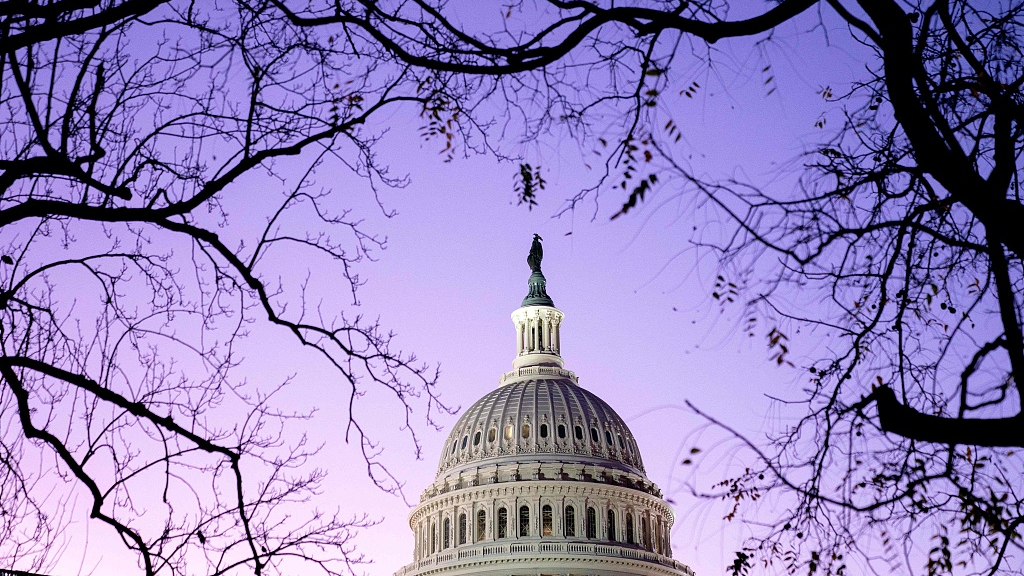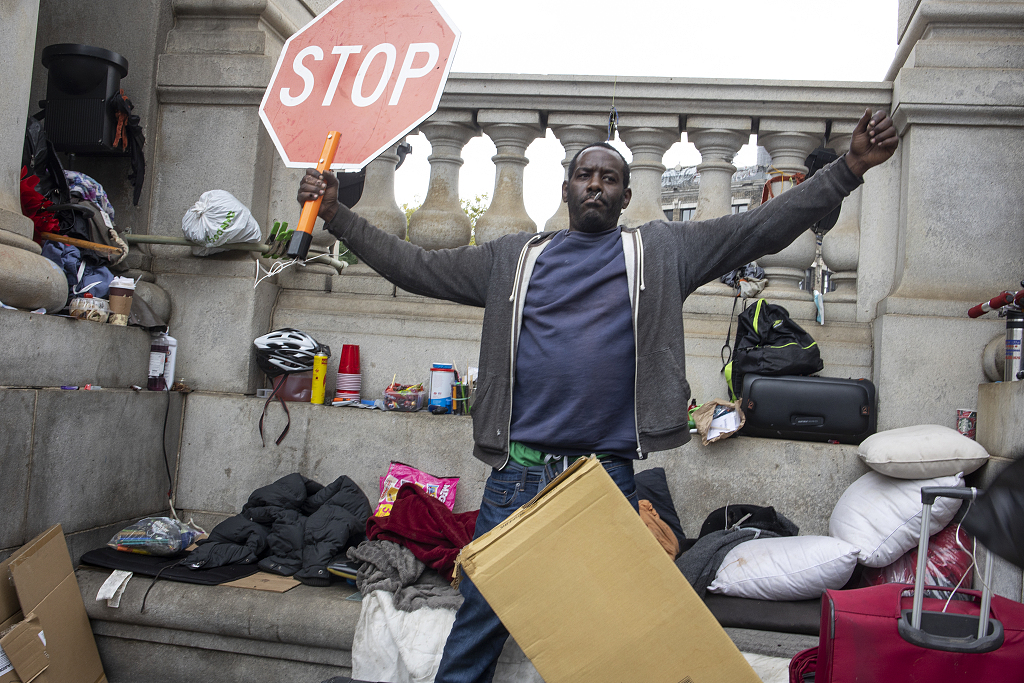
The U.S. Capitol in Washington, D.C., U.S., November 8, 2022. /CFP
The U.S. Capitol in Washington, D.C., U.S., November 8, 2022. /CFP
Editor's note: Radhika Desai, a special commentator on current affairs for CGTN, is a professor of political studies at the University of Manitoba in Canada. The article reflects the author's opinions and not necessarily the views of CGTN.
In his latest book, The Bill of Obligations: The Ten Habits of Good Citizens, Richard Haass, chief of the Council on Foreign Relations – the premier U.S. foreign policy think-tank in Washington, gets one thing right: the biggest threats the U.S. faces do not arise from abroad but domestically.
However, he hardly suspects the real reason he is right. It is hardly news to most of the world that the U.S. has no serious security issues to speak of: neither Canada nor Mexico are among its major security threats and even tiny Cuba was briefly home to Soviet missiles thanks to the U.S. provoking its Cold War rival. So, the enemies that the U.S.'s paranoid imagination has conjured up over the past half century have only been so many excuses for the U.S. to arrogate to itself the right to intervene militarily thousands of miles from home, inevitably incurring blowback.
It is a no-brainer that the chief threat to U.S. security is home grown: its ambitiously expansionist and imperialist corporate capitalist class and the military industrial complex it has nurtured, as a long and honorable tradition of U.S. critics of their country's foreign policy have pointed out. Among its leading figures are Charles Beard arguing in the 1940s that the U.S. had no vital interests to protect in Europe, William Appleman Williams writing in the 1960s about the "tragedy of American diplomacy," just when the opposition to the Vietnam war reached a crescendo, and Andrew Bacevich, applying these and other critiques to the U.S.'s futile 21st century wars.
Among the creme de la creme of the U.S. reigning neoliberal establishment, the very corporate neoliberal establishment that has endangered U.S. international security in the past and is bringing it to the brink of nuclear war today, Richard Haass can hardly come to this conclusion. Inevitably, he reflects its concerns and today they are about the domestic threats to its power whose multiplication is clear from developments such as the election of Donald Trump and the January 6 attack on the U.S. Congress.
Undoubtedly, the U.S.'s deepening and increasingly intractable political divisions and the deterioration of its never-very-sound democracy are worrying, and sensible analysis will point to 40 years of neoliberal policy as the cause and its reversal as the chief remedy. Neoliberalism has weakened the U.S. productive structure, reducing the quantity and quality of jobs, and subjecting U.S. working people to insecurity and indignity. It also financialized the U.S. economy, empowering tiny elite engaged in activities that detracted from the well-being of U.S. society. On the foundation of the resulting astronomic economic inequality and rising poverty have arisen social divisions, particularly along gender and racial lines.

Residents of a homeless encampment prepare to move their belongings as workers clean up the area in a city sweep in New York City, U.S., September 22, 2022. /CFP
Residents of a homeless encampment prepare to move their belongings as workers clean up the area in a city sweep in New York City, U.S., September 22, 2022. /CFP
However, these divisions have not been permitted their normal expression in the form of opposition to neoliberal policy because that would amount to pulling a luxurious carpet from under the feet of U.S. ruling classes. With little political representation, enough ordinary working people in the U.S. fall prey to the siren calls of Trump and the far right, and enough remain unenthusiastic about the Democrats to threaten the U.S. political establishment's hold on power.
One will find little of this in Haass's arguments. For him, the problem is that U.S. citizens are failing in their democratic duties, and his solution is the "bill of obligations" of his title. Rights, he chides U.S. citizens, must be balanced by obligations: be informed, get involved, stay open to compromise, remain civil, value norms, promote the common good, respect government service, support the teaching of civics, put the country first. Nice civics lesson… too bad it is incapable of addressing neither what ails the vast majority of U.S. citizens, nor its narrow predatory and speculative ruling class.
Notwithstanding his claims to be bipartisan, Haass is simply aiding Joe Biden's use of the rhetoric of "democracy" to shore up his power at home and abroad. But his aid is likely worse than the illness. Like the Bourbons, of whom Tellyrand said they learned nothing and forgot nothing, the U.S. political establishment can only respond to problems with moralism. A particularly notorious instance was Nancy Reagan's "Just say no" campaign against drug abuse. It made matters worse by stigmatizing the victims who consequently did not seek timely help and failed to address the social problems underlying drug abuse, resulting in the current opioid crisis. Similarly, moralism about democracy will only exacerbate the problem, and like the Bourbons, the U.S. ruling class is destined for political extinction.
(If you want to contribute and have specific expertise, please contact us at opinions@cgtn.com. Follow @thouse_opinions on Twitter to discover the latest commentaries in the CGTN Opinion Section.)